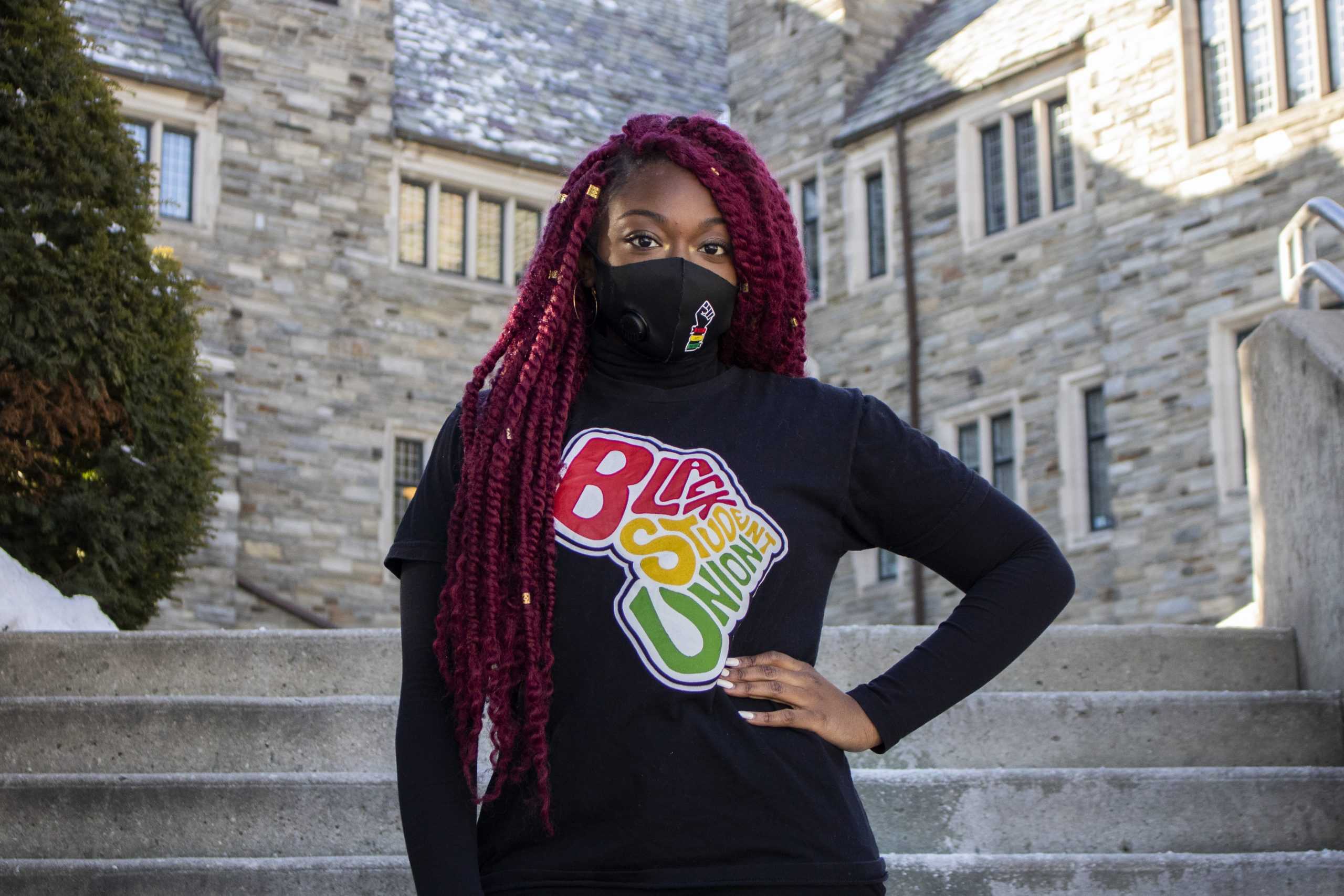With St. Joe’s students isolated to abide by COVID-19 protocols, chances to connect with fellow students are limited. Each week, The Hawk will offer conversations with various student leaders to help the community get to know them and their organization.
Our first Q&A is with the president of the Black Student Union (BSU), Taylor Stokes ’22, who is from West Philadelphia.
After Stokes graduates with a degree in criminal justice and ethics in the law, she plans to go to law school and study discrimination law. Her life goal is to develop her own diversity training program.
Why are organizations like BSU so important at predominantly white schools like St. Joe’s?
It can be hard to go out and go between classes and not see somebody who looks like you, or in positions like faculty, staff or administration. It’s important to make sure that students feel supported and have events for their culture.
You’re going to get a chance to see other Black students that you may have never seen before because they may be a different major or they’re going to be in a different environment than us. It’s a good time to make sure our members feel encouraged but also to know that we are here, we’re united and we’re going to make sure that we are represented on campus.
What does it mean to be Black and female at St. Joe’s?
Being in a predominantly white space teaches me how to navigate a lot of spaces, and as much as I want to have a normal college life, I can’t have that because I’m a Black woman at a predominantly white institution.
This means I can’t get the opportunity to let my hair down, say what I want, because there are stereotypes that can be placed upon me. There’s microaggressions present every day. People tend to look to me as the answer to all questions that I’m supposed to fix. In reality, I’m a 20-year-old woman in society trying to figure out my life.
How can this campus be more welcoming for students of color?
Before we can make sure people feel welcomed, we need to focus on the retention rate and see if minorities on campus are coming back. It’s all about the experience you can give us, not the money. If we still don’t feel welcomed and appreciated while we’re here, then we’re not going to stay.
We need to look at programming and opportunities, and make sure that the university is trying to educate people on how to be more diverse.
Also, we need to look at offering more diverse courses and representation within faculty. We need a better way to support students while they’re here.
What motivated you to become president of BSU?
I wanted to be able to provide that safe space for minorities on campus, especially Black students, and be able to take an administrative level of change. I decided to run for president because I always wanted to be in charge. I had a whole bunch of ideas for events that I wanted to put on, but I also want to change the direction and the mission of BSU from what it used to be in the past and what it will be now that I am president.
Why and how have you changed that mission?
In the past, everybody wanted to talk about what BSU was doing for the institution, what policies needed to be changed, what was BSU doing for Black Lives Matter. In reality, that’s not our job to educate white people, to host these forums, host these protests, host these walks. It’s not our job to make sure the administration is doing what it needs to do. We don’t get paid to do it. We’re undergrads. Our job is to go to school.
Under my role this year, we wanted to make sure members have fun events because for our members having to do the hard work of planning forums and protests and having to look at policies is draining. It’s exhausting. Black women especially, Black people in general, are always doing this hard free labor, educating people and doing all this stuff, where it’s taxing on our mental health. Along with being in school, we’re trying to live in society.
What is your most memorable moment at BSU?
The protest, [where BSU and other St. Joe’s students marched in solidarity in light of racist incidents on campus], that happened [in] October [2019]. It was something organized so quickly, yet so many people showed up and marched around campus. We came back, and it opened up the floor for anybody who had anything to say, and it was great to see how much power BSU has.
Also, the amount of allyship that people had, to stand with us and take a moment of silence, it was nice to see how supportive people were during that time.
How can students get involved with BSU?
Come to our events, follow us on Instagram and just reach out to any of the members. We are all welcoming, and we love to have support from all groups of people, not just our general members.











































